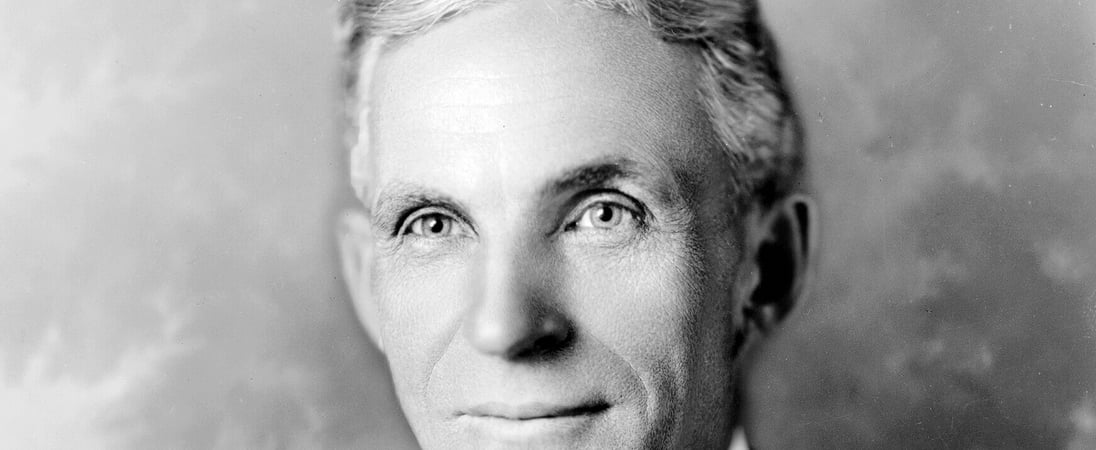
Henry Ford's birthday
Henry Ford, born on July 30, 1863, changed the world with his ideas. Growing up on a farm, he dreamed of making life easier for people.
Ford invented the Model T car, making it possible for everyday folks to travel easily. His assembly line method not only sped up car production but also shaped modern manufacturing.
Ford’s vision and hard work greatly influenced the 20th century, showing that big dreams can lead to huge changes.
Henry Ford’s Childhood and Education
Henry Ford was born in a small farmhouse near Dearborn, Michigan. His early years were filled with typical farm chores and family gatherings.
Despite this simple beginning, young Henry was curious and inventive. He often spent hours tinkering with machinery, showing a clear interest in mechanics from a young age.
Ford’s schooling was basic, typical of rural 19th-century America. He attended a one-room schoolhouse, but his real passion was learning outside the classroom.
Henry loved dismantling and reassembling the timepieces at home, much to his family’s dismay. This self-taught skill laid the foundation for his future inventions.
At age 16, Ford left home. He moved to Detroit to work as an apprentice machinist. Here, he gained crucial hands-on experience with tools and machinery.
These years were pivotal, shaping his understanding of mechanics and engineering. Ford’s early life, filled with curiosity and hands-on learning, set the stage for his remarkable journey in revolutionizing the automotive industry.
Henry Ford’s Journey of Innovation and Success
Henry Ford’s journey to success began with the Ford Motor Company, founded in 1903. His vision was clear: to build affordable cars for the general public.
In 1908, he introduced the Model T, which truly changed the game. It was simple, sturdy, and, most importantly, affordable. Ordinary people could own a car for the first time, revolutionizing travel.
Ford’s business acumen was as remarkable as his technical skills. He introduced the $5 workday, doubling the standard wage at the time.
This move boosted worker morale and set a new standard for wages. Ford believed in treating his workers well, understanding that happy workers were more productive.
In 1913, Ford made another significant leap. He introduced the moving assembly line to automobile production. This innovative method slashed the time it took to build a car.
Cars rolled off the line every 15 minutes, a stark contrast to the previous 12-hour process. This efficiency lowered costs, making cars even more accessible to the masses.
Beyond business, Ford had diverse interests. He delved into aviation with the Ford Trimotor airplane. Ford also had a passion for education and history.
He created Greenfield Village in Michigan, a vast museum showcasing America’s industrial and social history.
Ford’s personal life was as dynamic as his career. He married Clara Bryant in 1888, and they had one child, Edsel Ford. Despite his immense success, Ford faced personal challenges, particularly with his son. Their relationship was complex, marked by both collaboration and conflict.
Henry Ford’s impact went beyond cars and industry. He became a symbol of American innovation and determination.
His legacy is not just in the vehicles that bear his name but in his contribution to shaping the modern world. His life story is a testament to how vision, hard work, and innovation can create lasting change.
Interesting Facts About Henry Ford
A Leader in Peace Efforts: Ford strongly advocated peace during World War I. He even chartered a ship, the “Peace Ship,” in 1915 to host a conference aimed at ending the war.
A Brush with Politics: In 1918, Ford was a candidate for a U.S. Senate seat from Michigan. Although he ran as a Democrat, he lost by a narrow margin.
Inventor of Charcoal Briquettes: Ford is credited with creating charcoal briquettes. He developed them from the wood scraps of his car factories, leading to the establishment of the Kingsford Company.
Ford and Edison’s Friendship: Ford had a close friendship with Thomas Edison. They often went on camping trips together and shared ideas about innovation and business.
The Ford Foundation: In 1936, Ford established the Ford Foundation, one of the largest and most influential private foundations, aiming to advance human welfare.
Ford’s Interest in Rubber: He owned a rubber plantation in Brazil named Fordlandia, intending to supply his rubber for car tires.
An Author: Ford wrote several books, including his autobiography, “My Life and Work,” where he shared his philosophy on business and life.
A Lasting Educational Legacy: The Henry Ford Museum of American Innovation and Greenfield Village continue to be major educational attractions, reflecting Ford’s deep interest in American history and innovation.
Also on this date...
Share a Hug Day
Give a big hug to the people in your life you care about, and don’t be afraid to ask others for a hug if you feel like you need one yourself.
National Cheesecake Day
Berry, chocolate, just plain cheesecake…whatever your favorite, try making it yourself or visit a bakery or restaurant to enjoy this sweet, cheesy treat.
Paperback Book Day
Curl up with your favorite paperback, or dive into a new world between those soft, portable pages and take some time away from the hectic real world.




